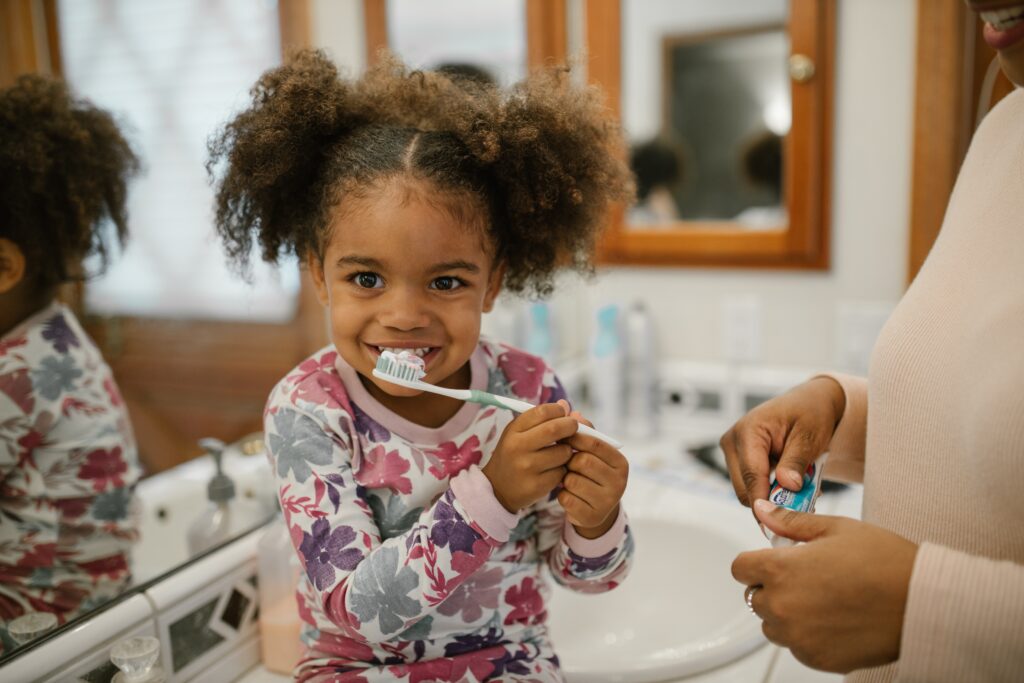
When we discuss the hardest and most high-pressure jobs, we often mention police officers, firefighters, surgeons, etc. And while all that is true, one more “job” takes the top spot. And that it is being a parent. While they don’t run into buildings on fire or do difficult surgeries daily, parents are doing equally important jobs. They are raising the next generation, which comes with its challenges.
Parents have a huge responsibility to make sure their kids grow up to be good people who contribute to our society. They need to give their children love, care, and attention and lead by example. But emotional support and care are not the only things a parent must do to ensure their children have a promising future. They have to make sure their children acquire certain skills, and they have to start teaching them early. And that will be the topic of our article today. We will talk about the life skills to teach your child by age 10.
Our List Of Life Skills To Teach Your Child By Age 10
Some basic skills will be on our list, like cleaning and making a snack. But also emotional skills your child should know. Emotional skills shouldn’t be put aside. They are very important later in life. For example, if you are someone with a history of addiction, you want to do everything in your power to prevent your child from inheriting your addiction. And the only way to do that is to take actions to prevent this at an early age. You have to focus on teaching your child emotional intelligence and asking for help at an early age. Now check out our list:
- Personal Hygiene
- Introducing Themselves
- Make A Snack
- Making Decisions
- Asking for help
- Cleaning Their Room
- Dressing Themselves
- Being Focused
- Money Management
Basic Hygiene
Before your child turns ten, they need to know how to take care of their hygiene. When they are very little, you do all that for them. You bathe them, wash their hair and moisturize them. But there comes the point when they have to learn to do that for themselves. A normal ten-year-old needs to know when it’s time to brush their teeth, take a bath, etc. You can make a little colorful timetable to make this easier for your kids. There you can write down when it’s time to wash their teeth in the morning and evening, when it’s time to take a bath etc. And put that list in your kid’s room so they can see it. After a while, that will turn into a habit, and they won’t need the timetable to remind them anymore.
How To Introduce Themselves
Kids need to acquire certain social skills before they turn ten. If not, they could grow up to be isolated, socially awkward people. For some kids, this comes easy, and they don’t need much help. But some kids are naturally shy and need a bit more time. Start by teaching them how to introduce themselves to strangers. They need to learn to say hello and say their name. Also, teach them basic phrases like thank you, please, and sorry.
Make A Snack
They are still too young to learn how to cook but not too young to know how to make a simple meal for themselves. They shouldn’t have to call you every time they want a little snack. The first thing to teach them is to make a sandwich. You can also teach them to make toast or a healthy snack. But in that case, be very careful and teach them how to use the toaster carefully and not get injured.
Making Decisions
Too often, kids grow up to be dependent on their parents for everything, especially when it comes to decision-making. That’s an issue that most likely stems from their childhood. So that’s the time to start working on and preventing that. You need to allow your children to make their own decisions. And that starts with the simplest things. What toy do you want to play with? What color do you want the walls in your room to be? What do you want to wear? Those are simple minor issues, but they are very efficient in building your child’s decision-making skills.
Asking for help
It may not sound like it but knowing how to ask for help is also a skill. Sometimes if kids are not adequately encouraged to ask for help, they tend to keep things that bother them inside. This usually continues in their teenage years and adulthood and creates emotional issues. According to experts at brightfuturestreatment.com, children who don’t acquire basic emotional skills in childhood are more likely to have addiction issues later on.
Cleaning Their Room
There comes a point when you need to stop doing everything for your kids, including cleaning their rooms. This is a great opportunity to start teaching them to be responsible and aware of their space. Kids like being dependable and letting you do all the chores for them. And you need to be very clear that this is unacceptable. Of course, you do this slowly. Don’t make the whole room their responsibility right away. Start by teaching them to make their bed. After a while, add picking up toys to their list of chores. Little by little, they will be cleaning their entire room by themselves.
How To Dress Themselves
One of the life skills to teach your child by age ten is to dress themselves. When they are very little and still in kindergarten, normally, you dress them every morning. But after that, it is time they start doing that for themselves. Picking out clothes that are appropriate for school should become their routine. And it shouldn’t be too hard to learn. They have seen you pick your clothes, and chances are they already know how to do it. By age 10, they should pick out and prepare their clothes the night before so they can get ready on their own in the morning.
Focusing On A Task
When kids are very little, they have a lot of energy and short attention spans. How many times did you give them a new toy, and they play with it for a short time and then just leave it? Well, that issue won’t magically disappear overnight. You have to teach them to stay on task and not put things off. Like doing homework or cleaning their room. And the earlier you start doing this, the better.
Appreciate Money
Everybody knows that scene in a store when kids are running after their parents demanding they buy something for them. Kids don’t know the value of money yet. Teach them the history of money and how to buy things on their own. Practice by sending them to buy their favorite candy and giving them enough money for exactly that. That way, they will learn to appreciate money and be grateful when you buy them something.
In Conclusion
These are the life skills we recommend you teach your child by age 10. As you can see, there is nothing too extreme, just basic life skills every kid should know. You just have to be patient and encourage them to learn. We hope our list was useful to you and made being a parent at least a little bit easier.











